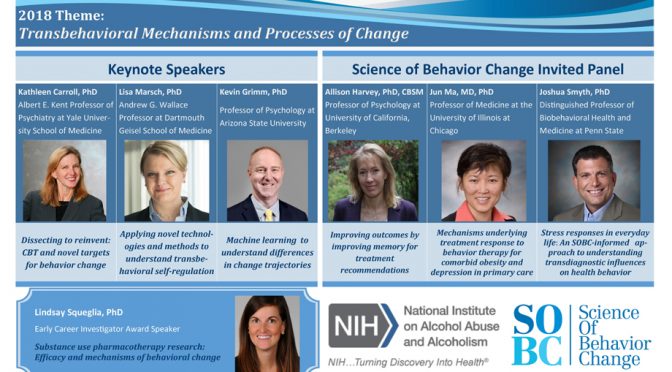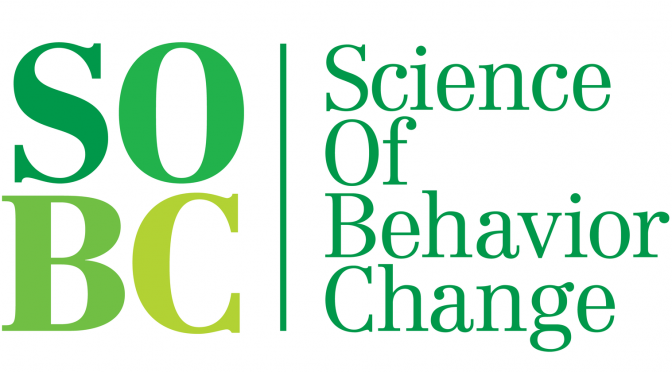These new funding opportunities on Adherence direct people to SOBC resources and encourage their use:
Improving Patient Adherence to Treatment and Prevention Regimens to Promote Health
https://grants.nih.gov/grants/guide/pa-files/PA-18-722.html – R01
https://grants.nih.gov/grants/guide/pa-files/PA-18-723.html – R21
This funding opportunity announcement (FOA) is being issued by the NIH Adherence Network through the Office of Behavioral and Social Sciences Research (OBSSR) with participation from multiple NIH Institutes and Centers. This FOA calls for research grant applications which address patient adherence to treatment and prevention regimens in healthcare to promote health outcomes. This FOA accepts applications that either propose or do not propose a clinical trial(s).
Applications under this FOA are encouraged, but not required, to apply approaches and tools developed under the NIH Common Fund’s Science of Behavior Change (SOBC) Program. These include: use-inspired basic research on mechanisms of change at multiple levels of analysis; assays for self-regulation, interpersonal processes and stress that have evidence as malleable targets for behavior change (see https://osf.io/zp7b4) developed under the SOBC program; and an experimental medicine approach which requires a clear a priori specification of the intended mechanistic target(s) of an intervention, and methods that test the degree to which an experimental manipulation or intervention engages those targets.
For more information about the SOBC program, please see: https://commonfund.nih.gov/behaviorchange.







